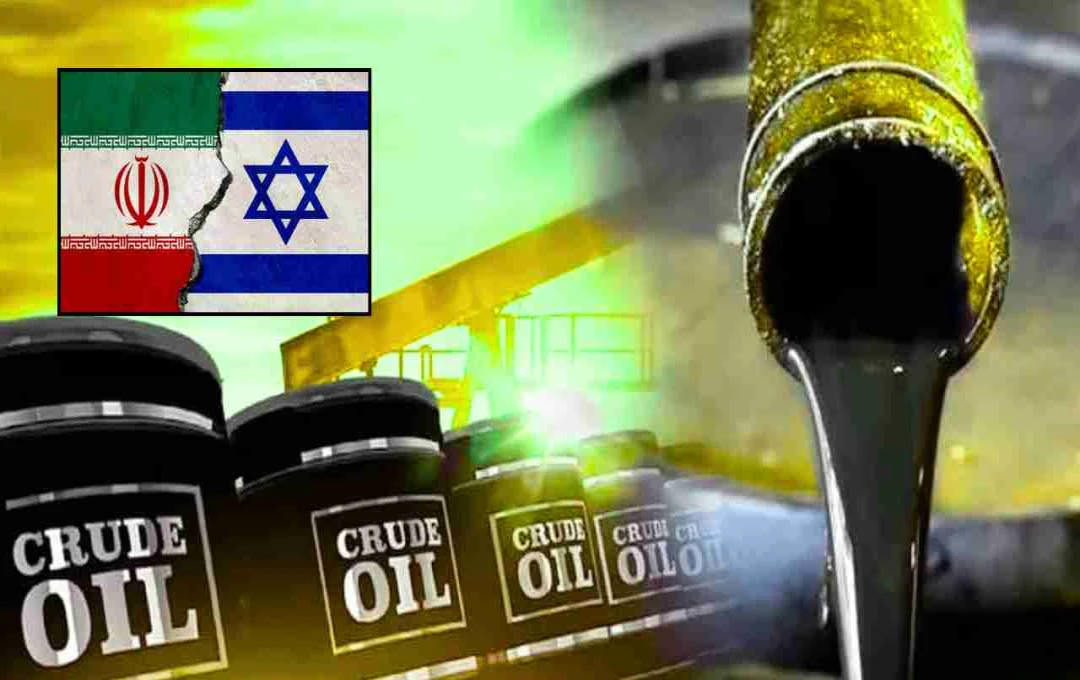Rising geopolitical tensions in West Asia are directly impacting the global oil market. While crude oil prices had been declining for the past few months, the situation has now drastically changed.
Iran Israel Tensions: West Asia is once again on the brink of a geopolitical crisis. Following recent Israeli military strikes on Iran, global markets are in turmoil, with the most significant impact being felt on crude oil prices. On Friday, oil prices surged by approximately 8%, the largest single-day jump in two months. This has not only increased global economic uncertainty but also raised concerns about an energy crisis for major consuming nations like the US, China, and Europe.
What happened on Friday?
On Friday, Israel officially confirmed that it targeted several key military sites in and around Tehran, Iran's capital. Israel claims the attack aimed to disrupt Iran's nuclear activities. Meanwhile, Iranian media reported hearing loud explosions in Tehran and other areas, although the government hasn't officially confirmed the attack.
Why did crude oil prices rise?

Following the attack, international oil prices skyrocketed. Brent crude futures surged 7.63% to $74.65 per barrel, while West Texas Intermediate (WTI) crude rose 7.91% to $73.42 per barrel. This increase is considered the largest since April 2nd, 2025.
The primary reason for this surge is the market's fear that if the conflict escalates, Iran might threaten to close the Strait of Hormuz, a crucial waterway through which a third of the world's oil tankers pass. Disruption to supplies through this route could drive crude oil prices above $100 per barrel.
America's Stance: We are not involved
Amidst these events, the US has clarified that it was not involved in the Israeli attack. US Secretary of State Marco Rubio stated in a press conference, "This was a unilateral Israeli action. We are not a part of this military operation." He appealed to Iran not to target American troops or embassies.
This statement clearly indicates that the US wants to avoid any direct military entanglement, especially while already navigating multiple global challenges concerning Ukraine and Taiwan.
What if the conflict escalates?
Oil analysts and strategic experts believe that if this conflict intensifies and Iran acts on its threat to disrupt oil production or transportation, a severe crisis could erupt in the global oil market. Sol Kavonic, an energy analyst at MST Marquee, stated that if Iran were to close the Strait of Hormuz or halt its own oil infrastructure, it could impact up to 20 million barrels per day of supply, sending shockwaves through the global economy.
Impact on India and other importing countries
India, which imports over 85% of its oil needs, could be severely affected by this crisis. The rise in crude oil prices could trigger a surge in domestic fuel prices, further increasing inflation. The prices of petrol and diesel, along with transportation and food items, could also escalate. This would also put pressure on the Reserve Bank of India's monetary policies.
Israel's clear intention: To eliminate Iran's nuclear infrastructure
Israeli Prime Minister Benjamin Netanyahu stated in a press conference on Friday that the attack aimed to completely eliminate Iran's nuclear ambitions. He also clarified that Israel is prepared to take further action if necessary. According to him, targeting Iranian ballistic missile factories, uranium enrichment centers, and other military installations was crucial.
International response and further apprehensions

The United Nations, the European Union, and China have expressed concern over the attack and called for restraint from both sides. However, international diplomatic efforts appear to be failing for now.
Experts say that without immediate mediation, this conflict could escalate, potentially involving regional countries such as Saudi Arabia, the UAE, and Iraq indirectly. This would have a significant impact not only on oil prices but also on global markets.















